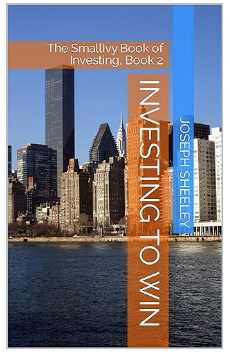
Photo by Tim Douglas on Pexels.com
" data-orig-size="1880,1253" sizes="(max-width: 1880px) 100vw, 1880px" data-image-title="surprised young diverse women talking on city street during weekend" data-orig-file="https://smallivy.files.wordpress.com/2017/04/pexels-photo-6567364.jpeg" data-image-description="" data-image-meta="{"aperture":"0","credit":"","camera":"","caption":"","created_timestamp":"0","copyright":"","focal_length":"0","iso":"0","shutter_speed":"0","title":"","orientation":"0"}" width="1880" data-medium-file="https://smallivy.files.wordpress.com/2017/04/pexels-photo-6567364.jpeg?w=300" data-permalink="https://smallivy.com/2024/03/09/buy-on-the-rumor-sell-on-the-news/pexels-photo-6567364/" alt="" height="1253" srcset="https://smallivy.files.wordpress.com/2017/04/pexels-photo-6567364.jpeg 1880w, https://smallivy.files.wordpress.com/2017/04/pexels-photo-6567364.jpeg?w=150&h;=100 150w, https://smallivy.files.wordpress.com/2017/04/pexels-photo-6567364.jpeg?w=300&h;=200 300w, https://smallivy.files.wordpress.com/2017/04/pexels-photo-6567364.jpeg?w=768&h;=512 768w, https://smallivy.files.wordpress.com/2017/04/pexels-photo-6567364.jpeg?w=1024&h;=682 1024w" class="wp-image-24155" data-large-file="https://smallivy.files.wordpress.com/2017/04/pexels-photo-6567364.jpeg?w=723" />Photo by Tim Douglas on Pexels.comThere’s an old saying on Wall Street that you should “Buy on the rumor, then sell on the news.” The meaning is that when you start to hear that something is going on at a company through the rumor mill, you should load up on shares. When the actual news comes out, however, it is time to sell because the effect of the news is already priced into the price of the shares. To take advantage of news, you really need to get in before everyone else, which means before the news breaks.
Many novice investors will hear news on a stock and buy or sell shares as a result. Glued to the CNBC screen or scrolling through Finance Twitter, they’ll look for news they can use to make a good trade. Financial news agencies key on this to boost sales, saying that you need to subscribe to their publication or their website to get “news you can use.” People think that they’ll be able to hear about something, then rush out and act on it before everyone else.
(Note, this site contains affiliate links. As an Amazon Associate I earn from qualifying purchases. When you click on an affiliate link and buy something, The Small Investor will get a small commission for the referral. You are charged nothing extra for the purchase. This helps keep The Small Investor going and free. I don’t recommend any products I do not fully support. If you would like to help but don’t see anything you need, feel free to visit Amazon through this link and buy whatever you wish. The Small Investor will get a small commission when you do, again at no cost to you.)
Some investors will even try to time things based on seasonal trends. For example, they’ll think that a lot of goods are sold in November and December, so they’ll buy shares of retailers in October. Or maybe they figure more people will go on vacation in the summer, so they’ll load up on airlines, hotels, and oil producers in the spring. The trouble is that everyone already knows about these trends and the stocks are priced accordingly. When earnings come out for the fourth quarter with retailers, they are compared against the earnings for the 4th quarter the years before, not against 3rd of 1st quarter results. Having the Christmas quarter for a retailer be better than the summer quarters will not drive share price up. If anything, share price will fall if the season isn’t as great as expected.
I’ve been investing for more than 40 years. In that time, I’ve learned a lot about what to do and what not to do. I’ve refined it all down into what I call the “Investing to Win Method.” I’ve put it all in my newest book, Investing to Win. Whether you’re a new investor or someone who is really not getting the kind of returns you desire, I think you can benefit greatly from reading this book. Right now it is only $21.99 for the print version and $4.99 as an e-book!

Investing to Win
Some examples
For example, a couple of years ago there was an incident on a United Airlines jet that made world news and hurt the UA brand. There were likely a lot of people who went out and sold shares of United Airlines the day after the video of the passenger being slammed into the arm rest and then thrown, face bloodied, off of the plane. I mean, that can’t be good for future sales, right. The memes that went around the next week with phrases like, “United: Fight or flight, we decide.” and jokes about the United “fight club” also didn’t build brand loyalty. Some people probably even sold shares short (which is when you borrow shares and sell them, planning to buy them back later at a lower price and keep the difference).
The issue is that the news was already out there. By the time the next morning came around, everyone already knew that United had messed up royally, and the comments by the CEO about the passenger being at fault didn’t help. So put yourself in the shoes of the other person in the trade – the one who was buying the shares. Would you have paid the same price you would have the day before, before the incident occurred? If you wanted to buy the shares at all, you probably would have only been willing if the share price were 10%, 20% or even 30% lower. You would be expecting a big discount since obviously the next earnings will be a bit lower than they were before. The shares were not as valuable as they were a day ago.
Let’s use another example not related to the stock market. Let’s say that you own a car that is worth around $25,000 and you accidentally drive it into a lake. Let’s say that the fact you drove it into the lake makes the news and everyone knows about it. Could you expect to then sell that car for $25,000 with everyone knowing that it was driven into a lake and probably fouled the engine and everything else? The price would drop instantly the moment the news got out. Someone might offer you a few hundred dollars, either to use the parts or with the plan to fix it up. Just because it was worth $25,000 before the event doesn’t mean you’ll be able to sell it for $25,000 after the news breaks.
Do you know how to select mutual/index funds to maximize your returns? If you’d like a little guidance, check out Sample Mutual Fund Portfolios . This gives sample portfolios you can use for reaching all sorts of different goals, including retirement.

Efficient Market Theory
It is exactly the same thing with stocks. There is something called “the efficient market theory,” which says everything known about companies is instantly priced into the price of their stocks. This means it is pointless to try to buy and sell stocks based on the news that comes out because the stock is already priced to take that news into account. Everybody knows the car has been in the lake. The best you’ll get is a couple of hundred dollars. It doesn’t matter how much it was worth the days before or how much you still owe on the car. It also doesn’t matter how much you need to buy another car.
For this reason this blog will never recommend trying to trade stocks, where you buy one day and then plan to sell a few days, weeks, or months down the road for a profit. All of the news you hear is already priced into the stock price. Everyone else has already looked at the same charts you have and sees the same trends. Everyone else knows that the company is coming out with a new product, or that product A is selling well, or that Baby Boomers are retiring.
The stock is already priced correctly for all of that news and anything you’ll see over a periods of weeks to months is just random noise. You have at best a fifty-fifty chance of making money. Buying and selling over short periods of time like this is gambling and could go either way. Add in costs and you’ll lose money over time.
Investing is putting your odds way into your favor. Companies that make great earnings year after year will tend to continue doing so. News stories will affect share prices for a brief period of time, but will simply wash out long-term. This is why we buy great companies based on factors like earnings growth and hold long-term.
We actually use Pretty Litter and really like it. The bags are light and delivered right to your door. There is no odor. Clean-up is a breeze, just a few seconds a day. And rather than dealing with clumps from urine, is just gets absorbed into the litter and you just change out the liter every few weeks. It even changes colors if you cat has an issue so you can get them checked out!
Give it a try! Click on the picture below to get started and support The Small Investor when you do.

How you can take advantage of news
That said, there is a way that you may be able to take advantage of big news that comes out. Right after the news breaks, people often overreact, especially if it is bad news. For example, let’s look again at the United Airlines story. People didn’t really know how big the effect of the debacle would have on United’s share price, so they tended to price it considerably lower until the dust settled. I mean, if you were buying shares, would you buy if you didn’t think you were getting a screaming deal if bad news had come out? You would want a little insurance.
As a result, if you already owned United shares and were looking to add more, or you were planning to buy before the news anyway and still wanted in, you might have been able to buy shares right after the news breaks, a little at first, and then a little more if the shares continued lower, and get a really good cost basis. Often when bad news breaks, after the dust settles, you see a bit of a bounce back. This won’t make you rich, but might let you get a little better price than you would have otherwise.
You can also use really good news to get out if you’re looking to trim a position anyway. Once surprisingly good earnings are released or a company makes a big announcement, share prices will often rise way more than they should, given fundamentals. People see the price rising and want to get in before they “miss out.” If you’re looking to trim back a bit anyway and you’re fast enough, you might be ab le to get a better price for your shares than you could have before the news broke.
Follow me on Twitter to get news about new articles and find out what I’m investing in. @SmallIvy_SI
Disclaimer: This blog is not meant to give financial planning or tax advice. It gives general information on investment strategy, picking stocks, and generally managing money to build wealth. It is not a solicitation to buy or sell stocks or any security. Financial planning advice should be sought from a certified financial planner, which the author is not. Tax advice should be sought from a CPA. All investments involve risk and the reader as urged to consider risks carefully and seek the advice of experts if needed before investing.
